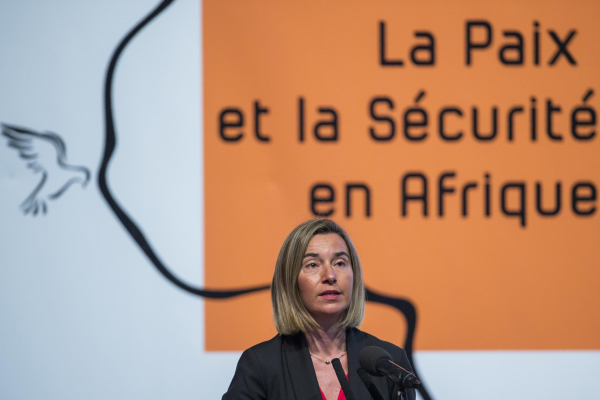A group of European Parliament members have asked top EU diplomat Federica Mogherini to appoint as a matter of urgency a special representative on international humanitarian law and international justice.
In a letter sent on June 29 to Federica Mogherini, the European Union High Representative for Foreign Affairs and Security Policy, 34 members of the parliament in Strasbourg call for the “urgent establishment of a European Union Special Representative for International Humanitarian Law and International Justice”. The signatories suggest this should be decided for the 20th anniversary on July 17 of the adoption of the International Criminal Court (ICC) treaty. “Nobody is doing anything to ensure that those responsible for crimes are brought to trial,” says Portuguese parliamentarian Ana Maria Gomes, initiator of the letter. She cites the example of Sudanese President Omar Al Bashir, who has two ICC arrest warrants against him, and “especially the case of Syria and Bashar Al Assad”. “This requires a political strategy,” Gomes told JusticeInfo in a telephone interview.
Impunity the new norm?
The signatories want Europe to take the lead to ensure that international humanitarian law is respected. They note “deeply worrying setbacks”, saying that “without stepping-up efforts to promote respect for international humanitarian law and to relentlessly pursue justice for victims, there is a real risk that impunity will become the new norm”. The European Union has some mechanisms, including a focal point with the ICC and the genocide network of Eurojust, and dedicates big budgets to international justice mechanisms. Since 2002, it has contributed 40 million Euros to the ICC through direct funding to the institution or through civil society. It also helps fund the ad hoc tribunals for Cambodia, Lebanon and Kosovo, as well as evidence-gathering initiatives for Syria. But the European Parliament members think it needs someone to enhance “its engagement in high-level debates and efforts at the UN and in other multilateral fora”.
Boosting effectiveness
“There has been a significant and persistent gap with regard to consistent implementation of policy commitments and the availability of EU instruments, weakening the effectiveness of EU action,” says the letter. When the ad hoc tribunals were set up at the beginning of the 1990s, the US State Department got a special war crimes unit and ambassador, which were hailed for their expertise in international justice and ability to move political levers in line with US interests. But the EU seems to treat the issue as just an aspect of its Human Rights policy. This is not the first time this request has been made to the EU, but “we’ve never got a clear answer,” says Ana Maria Gomes. “Perhaps some states might not like it, but once it’s there, it will be very difficult to undo.” The decision is not up to the EU governments but can be decided by the EU’s foreign affairs chief. A week after receiving the letter, Mogherini had still not responded to the request from European parliamentarians. Contacted by phone, her press office reminded us that in June 2012 the EU created a post of Special Representative for Human Rights, whose mandate includes international justice.





